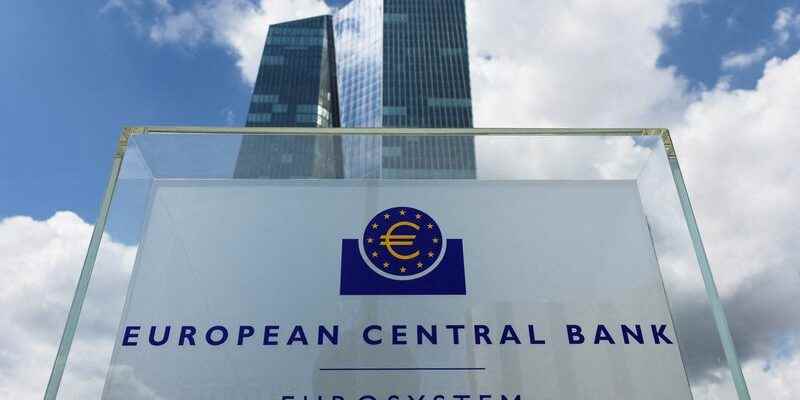FRANKFURT (Reuters) – The European Central Bank (ECB) is exploring ways to reduce the cost of remunerating bank reserves, which is likely to rise by tens of billions of euros as interest rates rise, a we learned from four sources.
To combat inflation, the ECB raised its key rates at the beginning of the month and the interest rate on the 4.6 trillion euros in bank reserves above regulatory requirements, bringing it from -0.5% to 0.75 %.
This change could lead the institution to pay tens of billions of euros in interest per year on these reserves, and therefore force it to draw on the equity of the national central banks of the countries in which the reserves concerned are the most important.
A risk against which the Netherlands and Belgium have already publicly warned.
This development also risks placing the ECB in a politically uncomfortable situation since it would amount to somehow subsidizing the banking sector at a time when households and companies are in difficulty in the face of inflation and the rise in the cost of credit.
In particular, banks can count on a risk-free profit on three-year loans taken out with the ECB itself since the average interest rate of these “targeted longer-term refinancing operations” (TLTRO) is lower than that to which they are now entitled on the cash deposited at the central bank.
For these reasons, ECB teams are therefore studying several options to reduce the remuneration of reserves, including that of stopping the remuneration of liquidity borrowed from the central bank, people familiar with the matter told Reuters.
The ECB could also modify the terms of the TLTROs, an option which could however undermine the credibility of possible future operations and expose it to legal recourse, the same sources said.
Among the other proposals under study is that of a remuneration which would only concern excess reserves below or above a threshold to be determined, as well as that of a halt to the remuneration of compulsory reserves, which currently reaches 1 .25% per year, it was added.
The ECB declined to comment.
The members of the institution’s Board of Governors only briefly discussed the file during their meeting on September 8 and should study it during the seminar scheduled for Cyprus on October 5 or during the monetary policy meeting on October 26. .
On the stock market, banking stocks in the euro zone, already in sharp decline, widened their losses after information from Reuters: their Stoxx index yielded 3.73% around 11:20 GMT.
(Report Francesco Canepa, Frank Siebelt and Balazs Koranyi, French version Marc Angrand)
